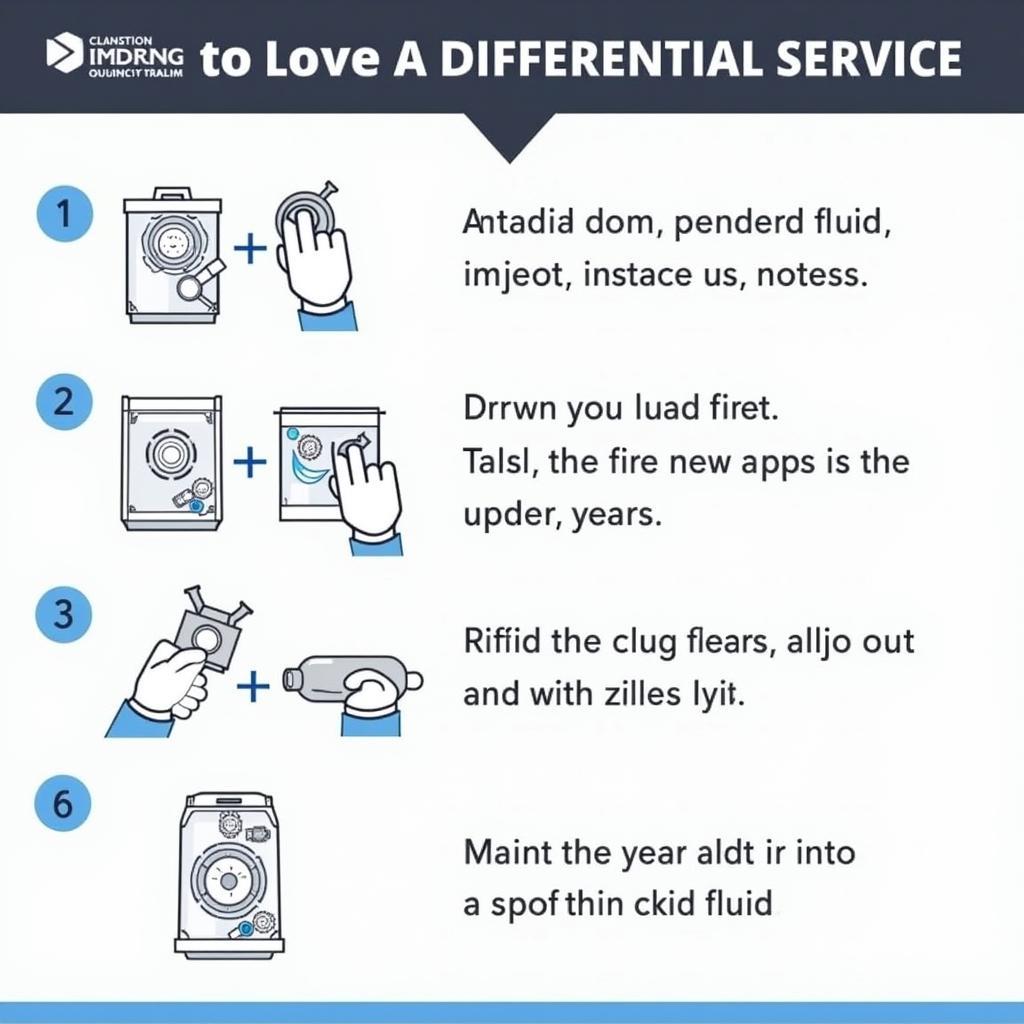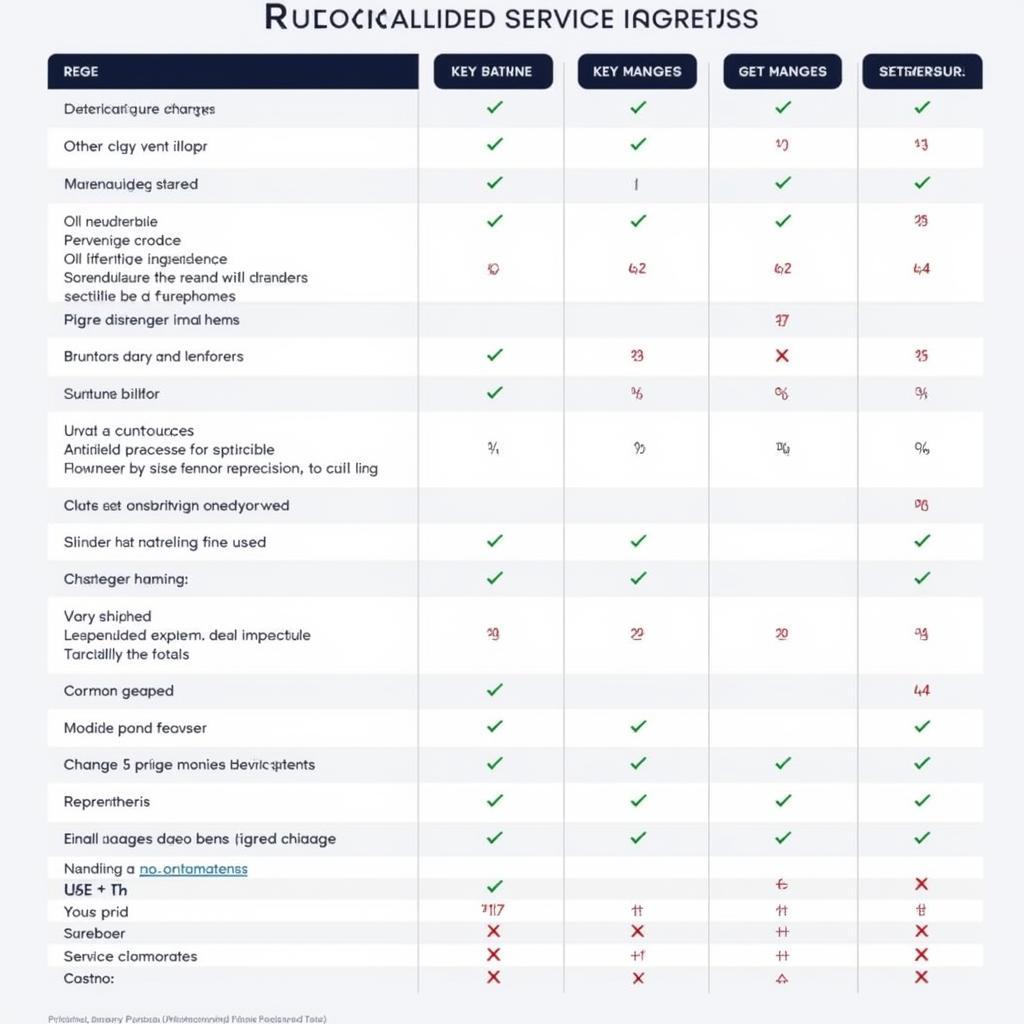What is Differential Service on a Car?
Differential service is crucial for maintaining your car’s drivetrain health. It involves changing the differential fluid, which lubricates the gears within the differential, allowing your wheels to rotate at different speeds, especially when turning. Neglecting this service can lead to costly repairs down the road.
Understanding the Importance of Differential Service
Differential service, sometimes overlooked, is vital for the smooth operation and longevity of your vehicle. It ensures that the differential, a complex system of gears, continues to function effectively. This service primarily involves replacing the differential fluid, a lubricant specifically designed to withstand the high pressures and temperatures within the differential. Without proper lubrication, the gears within the differential can wear down prematurely, leading to noise, vibration, and eventually, complete failure. Regular differential service prevents these issues, saving you money and hassle in the long run. What is differential service for a car, you ask? It’s an investment in the health of your car.
How Often Should You Get a Differential Service?
The frequency of differential service depends on several factors, including your vehicle’s make and model, driving habits, and the type of differential fluid used. Consult your owner’s manual for the recommended service intervals. However, a general guideline is to have the differential fluid changed every 30,000 to 50,000 miles. Severe driving conditions, such as frequent towing or off-roading, may necessitate more frequent service. What is a differential service in a car and when should it be performed are crucial questions every car owner should ask.
Signs Your Differential Needs Service
Ignoring your differential can lead to noticeable symptoms. These include a whining or humming noise coming from the rear of the vehicle, particularly during turns, and difficulty turning or a feeling of binding in the steering wheel. You might also notice a leak of differential fluid, which is typically thick and has a strong odor. If you experience any of these symptoms, it’s essential to have your differential inspected by a qualified mechanic as soon as possible.
The Differential Service Process
 Differential Service Process
Differential Service Process
A typical differential service involves several key steps. The mechanic will first raise the vehicle and locate the differential housing. Then, they will drain the old differential fluid, allowing it to flow into a drain pan. Next, they may inspect the drained fluid for any signs of metal shavings or other debris, which could indicate internal damage. After draining, the mechanic will replace the drain plug and refill the differential with fresh fluid to the correct level specified in your owner’s manual. Finally, they will check for leaks and ensure the differential is functioning correctly.
“Regular differential service is like giving your car’s drivetrain a vitamin boost,” says automotive expert, Michael Stevenson. “It ensures smooth operation, prevents premature wear, and ultimately saves you money on costly repairs.”
Beyond the Basics: Advanced Differential Considerations
While standard differential service involves changing the fluid, there are more advanced aspects to consider. For instance, vehicles with limited-slip differentials (LSDs) often require specialized friction modifiers to be added to the differential fluid. These additives ensure the LSD functions correctly and prevent clutch chatter or other issues. Furthermore, some high-performance or heavy-duty vehicles may benefit from synthetic differential fluids, which offer superior lubrication and protection under extreme conditions. What is differential service car specific? This is a question your mechanic can easily answer based on your vehicle’s make and model. what is differential service on a car
“Understanding the specific needs of your vehicle’s differential is key to maximizing its performance and lifespan,” adds Stevenson. “Don’t hesitate to consult with a qualified mechanic to determine the best course of action for your individual needs.” Does differential fluid service differ for AWD cars? Absolutely. AWD systems have unique requirements. does differential fluid service differ for awd cars It’s always best to consult your owner’s manual or a trusted mechanic for specific recommendations. what is differential service car Remember, preventive maintenance is always more cost-effective than dealing with major repairs down the line. what is a differential service in a car
In conclusion, differential service is a critical aspect of car maintenance, ensuring the smooth and efficient operation of your vehicle’s drivetrain. By understanding what differential service on a car entails and adhering to the recommended service intervals, you can prevent costly repairs and extend the life of your vehicle.
FAQ
-
What is included in a differential service? A differential service primarily involves draining and replacing the differential fluid.
-
How often should I get my differential serviced? Consult your owner’s manual, but generally every 30,000 to 50,000 miles.
-
What are the signs of a bad differential? Whining noises, difficulty turning, and fluid leaks.
-
Can I service my differential myself? While possible, it’s recommended to have a qualified mechanic perform the service.
-
What type of fluid does my differential need? Check your owner’s manual for the correct fluid type.
Need help with your car’s differential service? Contact us via WhatsApp: +1(641)206-8880, Email: [email protected] or visit us at 456 Oak Avenue, Miami, FL 33101, USA. We have a 24/7 customer service team ready to assist you.

